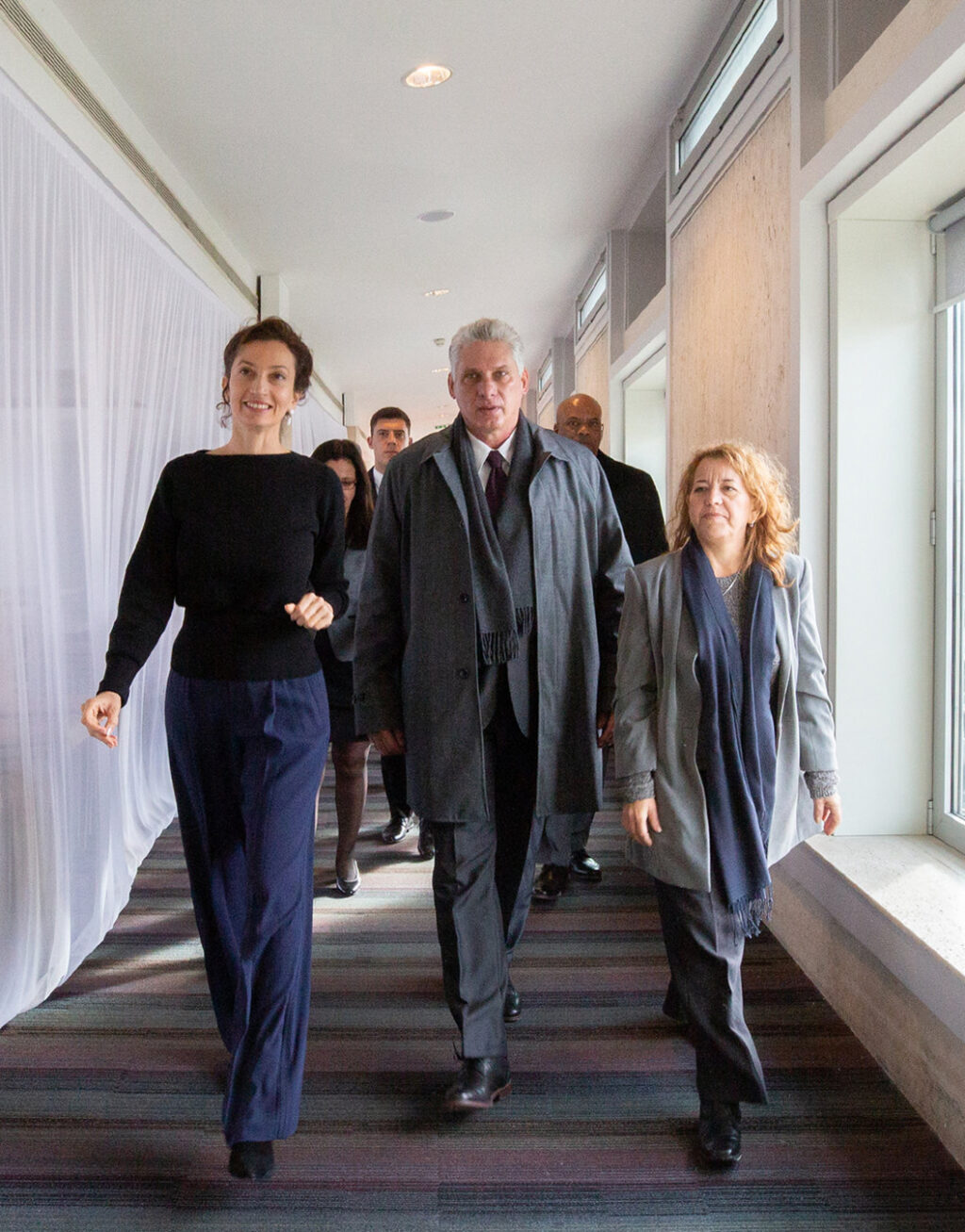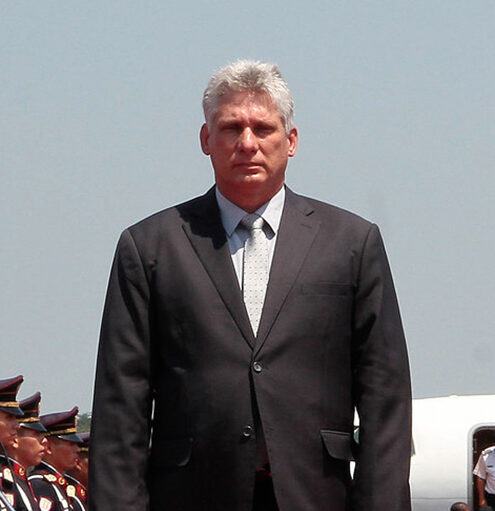The current president of Cuba, Miguel Mario Díaz-Canel Bermudez, was born on April 20, 1960, in Placetas, Cuba, a little more than one year after Fidel Castro led a successful revolutionary guerrilla movement to take control of the island nation. Miguel’s father, Miguel Díaz-Canel, was a factory worker. His mother, Aida Bermudez, was a schoolteacher.

Díaz-Canel attended the Central University Marta Abreu Las Villas. He graduated in 1982 with a degree in electrical engineering. He then joined the Cuban armed forces and served in the army until 1985. After his military service, Díaz-Canel returned to his alma mater and taught engineering. He also became involved in the Young Communist Youth League. He soon became a prominent member of the league and in 1987 he was appointed the Cuban Communist Party’s liaison to Nicaragua. At the age of 33, he became the second secretary of the Young Communist Youth League.
In 1994 Díaz-Canel became the first secretary of the Communist Party in Villa Clara province. In 1997 he was elevated to membership of the national politburo. The 14-member politburo acted as senior advisers to President Fidel Castro.
In 2008 Raul Castro became president after the retirement of his brother, Fidel. The next year, Díaz-Canel was named Minister of Higher Education. He served in that capacity until 2012 when he became one of the eight vice presidents of the Council of Ministers. He was responsible for overseeing the ministries of education, science, culture, and sports. In 2013 he became the first vice president of the Council of State and the nation. By that point, he was Raul Castro’s handpicked successor.
On April 18, 2018, Díaz-Canal was nominated as the only candidate to succeed Raul Castro as president. He was confirmed by a vote of the National Assembly on April 19 and sworn in on the same day. He is the first president born after the Cuban Revolution of 1959. Since becoming president his administration has limited the presidential terms to two terms of five years.
Since taking office Díaz-Canel has instituted reforms. Discrimination based on disability, gender, gender identity, race, or sexual orientation has been banned but dissent has also been suppressed. This is especially the case for the protests against the government’s handling of the COVID-19 pandemic. The hopes of many that Díaz-Canel’s administration would be one of reform have not been realized.
Miguel Díaz-Canel’s first wife was Marta Villanueva. The marriage ended in divorce. His current wife is Lis Cuesta Peraza. He has two children: Miguel Díaz-Canel Villanueva, and Jenny Díaz-Canel Villanueva.

